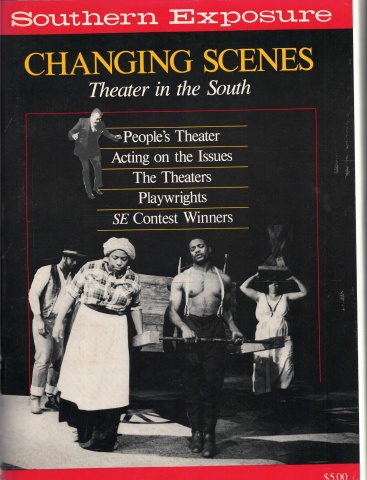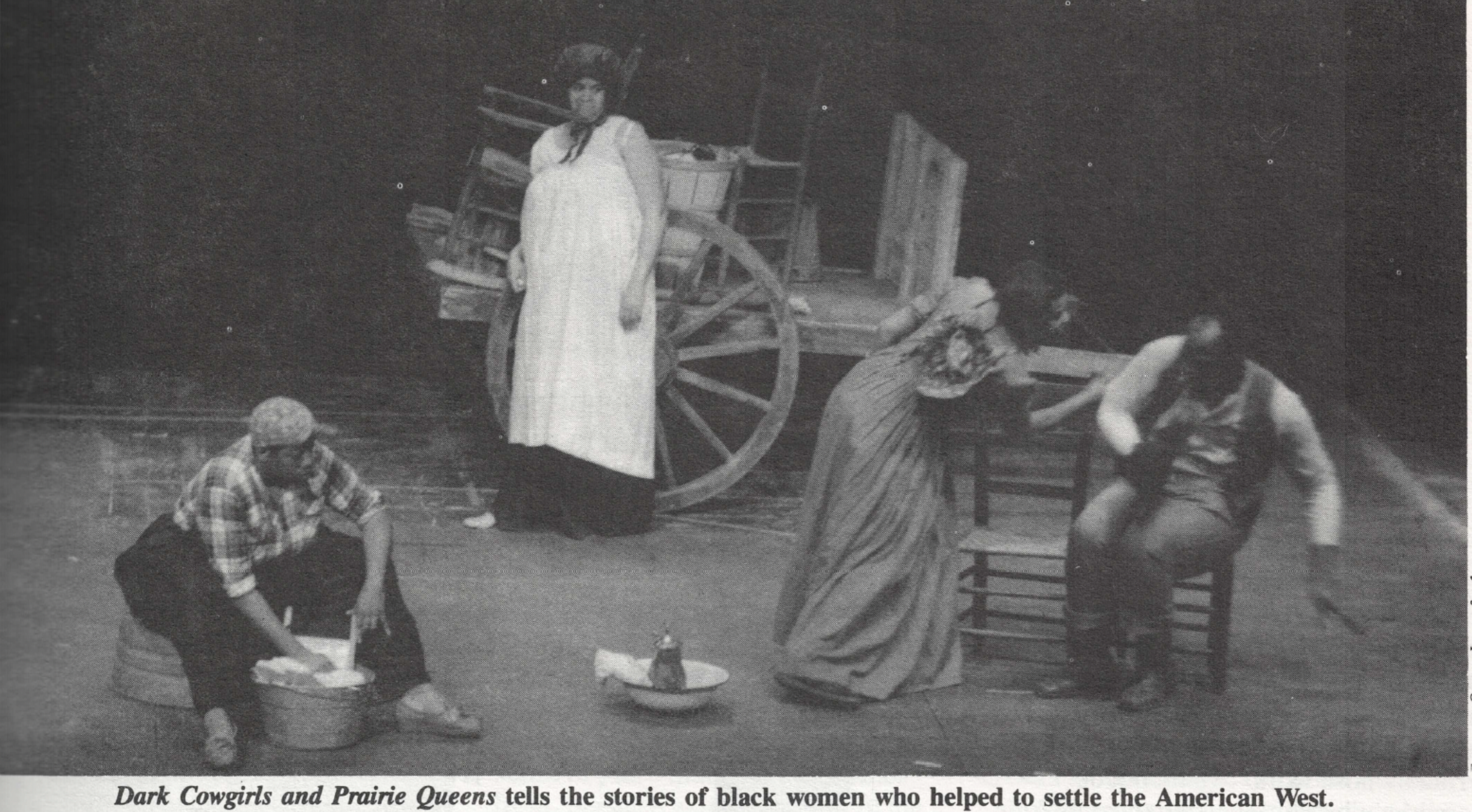
This article originally appeared in Southern Exposure Vol. 14 No. 3/4, "Changing Scenes: Theater in the South." Find more from that issue here.
Carpetbag Theater, founded in 1970 by W.F. Lucas, is one of the oldest surviving black theater companies in the South, according to Linda Parris-Bailey, its artistic director. The five-member touring company is based in Knoxville, Tennessee. Although Carpetbag is often on the road, Parris-Bailey says, "We are committed to making the voices of our community heard and we want to give something back to the community — a positive image of itself."
The company's current work-in-progress, Red Summer, is based on a Knoxville race riot in the summer of 1919, when a white mob stormed a jail which they thought held a black man accused of murdering a white woman. When the crowd discovered that the man had been moved to Chattanooga, the armed white mob attacked black businesses.
"We are interested in how the community responded, in the stories of the individuals involved," says Parris Bailey. Funding for the project came from the Tennessee Arts Commission and the National Endowment for the Arts.
Original work is an important element of Carpetbag's goals. "The development of our own material has been a vital part of our identity from the beginning," says Parris-Bailey. Carpetbag is currently touring with Dark Cowgirls and Prairie Queens, a play about black women who helped settle the West, written by Parris Bailey with the help of her fellow actors. The inspiration for the play began several years ago when Carpetbag was asked to perform for Black History Month. "We didn't want to do Harriet Tubman or Sojourner Truth again," said Parris-Bailey. She came across a book called The Black West and began developing vignettes based on the women she discovered in the text.
What began as a 15-minute piece became a full-length play which explores the lives of six black women between 1830 and 1890.
Carpetbag also tours with Cric?Crac!, a collection of black folktales from Africa, Haiti, and the American South.
Carpetbag members — Jeff Cody, Linda Upton Hill, Adora Dupree, Rafael Clements, and Mayta Haley — work as administrators, producers, technical directors, and costumers as well as performers. They perform in recreation centers, churches, colleges. high schools, museums, and prisons in addition to traditional theater spaces.
"There isn't a tradition in the black community or in the entire low- and middle-class community of 'going to the theater' so we go to where the people are," says Parris-Bailey. All of the company members have outside jobs. In addition to spending 20 hours a week working together each member donates two hours of office work to keep the business end of the theater running. "We know that we are our own best resource," says Parris-Bailey "We use every additional skill that o of us picks up."
In this excerpt from Dark Cowgirl and Prairie Queens, Biddy Mason walked to California from Texas behind her master's wagon. She goes to court to plead for her freedom, since California is not slave territory. Afterward she goes on to earn enough money to build a nursing home. Here is her plea in court:
Excerpt not included here; copyright © 1983 Linda Parris-Bailey.

